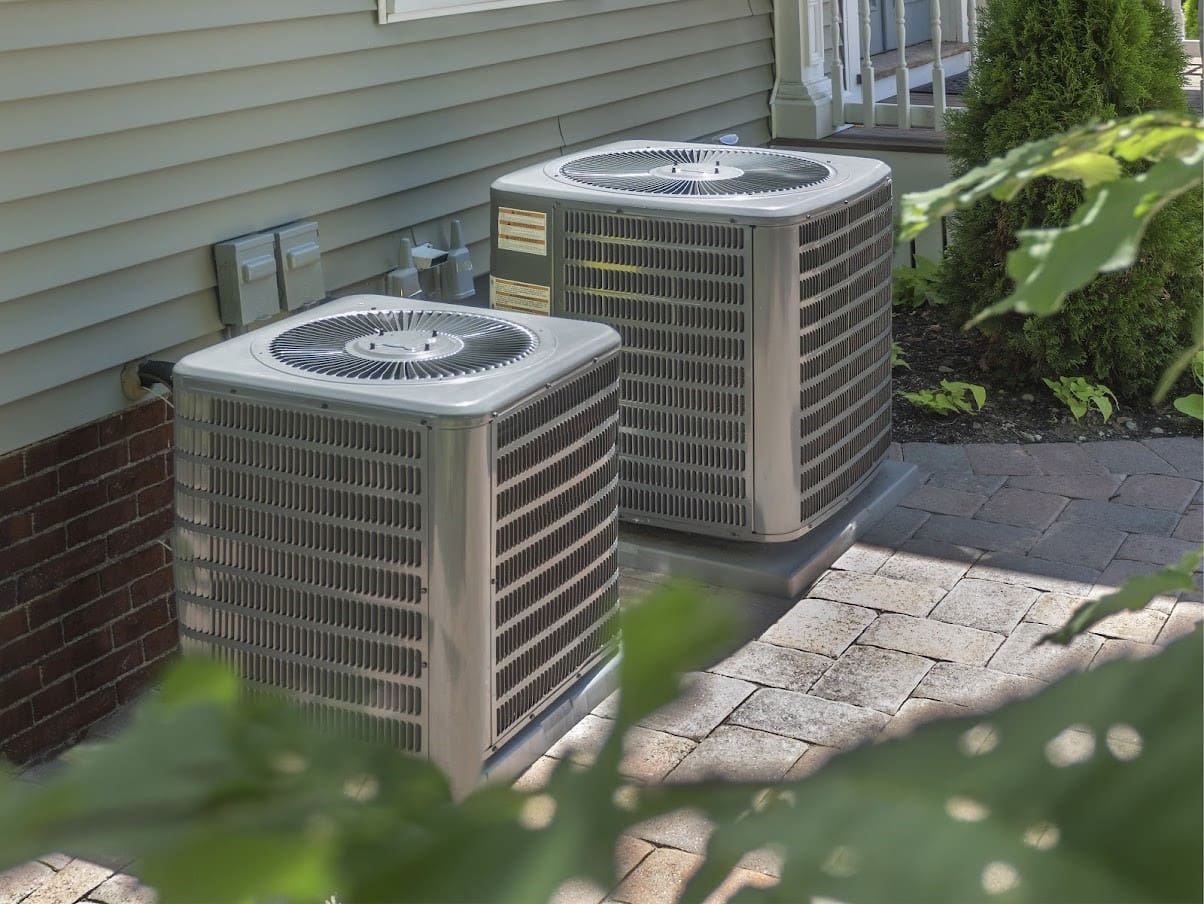
Some homes rely on furnaces to provide warmth for their occupants, while others use heat pump systems. Heat pumps offer several advantages, from the ability to provide year-round comfort to their space-saving properties. Just like any other mechanical system, however, a heat pump can experience problems that inhibit its effectiveness throughout those frigid Colorado winters.
Whether you already own a heat pump system or you plan to install one in the near future, you need to understand some key points about how these devices work, why they might fail, and how to correct or even prevent such failures. Warm up your knowledge bank by exploring these answers to frequently asked heat pump questions.
How Does a Heat Pump Work?
Heat pumps work by transferring heat energy from the outside of the home to the inside. Air-source heat pumps transfer heat energy into the surrounding air, while ground-source or geothermal heat pumps transfer heat energy from the outdoor ground into your home. Ground-source heat pumps offer greater efficiency and longevity, but air-source heat pumps cost less to install.
Both types of heat pumps operate under the same general principles. In a typical air-source heat pump system, coils filled with refrigerant connect an outdoor unit and an indoor unit. After the outdoor air chills the refrigerant, the compressor applies pressure to heat it up. As the hot refrigerant enters the coils of the indoor unit, the heat energy dissipates into your home’s indoor air system.
Furnaces and heat pumps differ in one fundamental way: Furnaces actually create heat energy, while heat pumps simply transfer heat energy from one medium and location to another. Because of their heat-generating properties, furnaces can do a better job of warming homes in extremely cold climates. However, heat pumps can do double duty as air conditioners simply by reversing the refrigerant flow.
What Can Go Wrong With Your Heat Pump?
A heat pump includes a variety of components; it also has several potential failure points. For instance, a problem with the thermostat or its electrical connections can prevent the system from maintaining the desired temperature or even switching on at all. Both electrical and mechanical problems can cause a fan to fail, keeping the warmed air from circulating through your home.
Refrigerant can leak out of the system over time. A lack of refrigerant deprives the coils of their ability to transfer heat energy. Dirty air filters or debris clogging up the outdoor unit can prevent air from getting to the heat pump. External damage to the outdoor unit, notably bent fins, can also limit the amount of airflow the system can use.
When Should You Suspect a Heat Pump Problem?
Just as heat pumps can fail in various ways, a heat pump failure can produce various symptoms, some of which might reveal the nature of the problem. For instance, if your heat pump won’t switch on, suspect a starter capacitor failure, thermostat malfunction, or power loss due to bad wiring or a thrown breaker. If the system only works in cooling mode, you may need to replace the reversing valve.
Both low refrigerant and debris blocking the outdoor unit’s airflow can cause your heat pump to underperform. If your system suffers from a dirty outdoor unit or dirty coils, the outdoor unit or the refrigerant coils may actually ice over. If the heat pump seems to operate normally but you still don’t feel as warm as you should, you might need to repair or replace a faulty fan or blower motor.
If your heat pump switches on and off frequently, you might have a refrigerant leak, an undersized or oversized system for your home, or a thermostat issue. These same problems could also cause your heat pump to run constantly instead of in normal cycles. A heat pump that runs erratically or inefficiently also merits troubleshooting by a heating and cooling professional.
How Can You Minimize Heat Pump Issues?
Preventative maintenance can make a major difference in keeping your heat pump operating efficiently and reliably for many years to come. Neglect can reduce a heat pump system’s efficiency by up to 25 percent. You can avoid many common heat pump problems simply by changing the air filter regularly, removing debris from the outdoor coils, and straightening any bent fins you notice.
Comprehensive maintenance inspections also play a major role in safeguarding your heat pump system. You should schedule such an inspection every year. Your HVAC technician will look for duct leaks, dirt or debris accumulation, low refrigerant, electrical or thermostat malfunctions, and mechanical parts that require lubrication, repair, or replacement. Professional repairs can then correct any problems.
Whether you need to install a new heat pump in your home, get a potential problem looked at, or keep your heat pump in top operating condition, Steel Brothers Heating, Inc., has your answers. Contact us today and describe your situation so we can schedule the necessary service.
